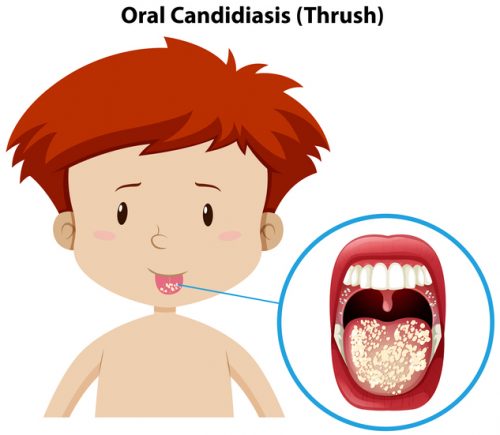Are Dental Probiotics Good for you? The majority of the bacteria in your mouth are good bacteria. However, your mouth may also harbor harmful bacteria, which may form plaque that may cause immense havoc in your mouth if not eliminated. Notably, dental probiotics are suitable for your oral health.

Research conducted to investigate this was one involving a probiotic known as A12. According to scientists, this probiotic stopped
plaque formation and eliminated terrible bacteria.
What are the benefits of oral Probiotics?
As previously mentioned, these bacterial strains are known to improve oral health. Generally, they prevent the growth of bad pathogenic bacteria, and in doing so, they encourage the development of good bacteria. The mouth is like the gut since it has multiple bacterial communities commonly identified as the oral microbiome.
Gut and oral probiotics aren’t that different since they all use good bacteria (in this case, the mouth) to improve the oral microbiome. The gut and oral probiotics aren’t similar. Oral biotics are more effective when taken directly orally through probiotic drinks, chewable tablets, milk, and even Lozenges.
There are some kinds of toothpaste that contain oral probiotics. Since oral probiotics deliver bacteria strain on the mouth’s surface, they trigger biofilms’ formation. Overall, continued use of oral probiotics can immensely boost general oral health.
Benefits of Probiotics
- Eliminating Bad breath
Bad breath in your mouth results from germs on and beneath your tongue. These germs produce volatile sulfur compounds (VSC) like methyl mercaptan, and hydrogen sulfide smells like rotten cabbage and egg. Flossing, brushing, chewing gum, and swishing with mouth rinse are temporary solutions since the germs can rapidly repopulate.
According to a thesis review from the University of Connecticut, the best way to get rid of foul breath is to get more good bacteria in your mouth. A study cited in the review found streptococcus salivarius strain K12 effective in eliminating halitosis-related germs.
Scientists gave test subjects the probiotics Lozenges (K12). After about a week, 85% of the test subjects experienced a massive reduction in the VSC.
Other benefits of probiotics include; reducing gum problems, dental cavities, oral candidiasis, and pharyngitis.
Reduces Plaque Significantly
As previously mentioned, there are bad and good bacteria in the mouth. A typical instance of bad bacteria is streptococcus mutants; this bacteria is known to turn sugar into lactic acid, creating a suitable environment for plaque formation.
Notably, plaque formation also favors the multiplication of this bacteria, which may cause tooth cavities without good oral hygiene
practice.
According to a 2016 study, the A12 strain prevents the formation of plaque film by eliminating the bad bacteria, s.mutans.
Prevents Gingivitis Some research studies have shown certain good bacterial strains to help eliminate gingivitis—for instance, the lactobacillus reuteri. Aside from removing and preventing gingivitis, it also prevents bleeding gums.
Lactobacillus reuteri helps prevent and kills off the bacteria causing plaque build-up. Overall regular consumption of probiotics, such as L.reuteri, can significantly help you avoid gum diseases and reverse the gum disease condition. It’s also best you see your periodontist regularly to monitor any gum disease that might crop up.
- Eliminates Candida Overgrowth
Candida only becomes a major oral problem when there’s an imbalance in the oral microbiome. Candida is fungi that reside in the mouth naturally. Oral thrush is one problem Overgrowth of candida can cause.
Oral thrush is characterized by strange spots that appear on
your tongue. Since candida feeds on sugars and carbs, avoiding consuming such foods is best to prevent the condition from spreading. Moreover, regular use of probiotics will ensure it’ll no longer be a bother.
- Reducing Oral Inflammation
Researchers conducted a study in 2007 which involved giving patients with periodontitis probiotic supplements containing Lactobacillus Brevis. The final results indicated that each participant responded well to the probiotic.
In fact, all the participants showed significant
improvement on every Inflammatory marker the researchers had analyzed. Another study also showed a significantly lower gingivitis-related inflammation from daily intake of probiotic milk.
How to Choose the Best Dental Probiotic
The best dental probiotic to opt for is one with a high strain count measure. The measure is usually in colony-forming units (CFU). Advisably, it’s been you opt for a probiotic with at least 3 billion CFUs. Remember, however, that, compared to other regular probiotics, oral probiotics have a lower strain count and CFU measure.
In your search, also look for a probiotic with beneficial strains such as the S. salivarius M18, S. salivarius, L. reuteri, and L. rhamnosus.
The best way to consume oral probiotics is to melt them in your mouth or simply chew it up.
Most patients experience significant improvement within a week or a few days after using probiotics. One of the first telltale signs of an efficiently working probiotic is a drastic reduction of bad breath.
While under an oral probiotic, 30 days is enough time to help you witness its effectiveness. Probiotics are known to be safe for long-term use since they also add healthy yeast
and bacteria to your body.
In conclusion
The use of dental probiotics is an oral care routine supplement that helps improve your oral health. It would be best if you didn’t replace a healthy diet and oral hygiene practice with the use of probiotics. A combination of all these three factors will help improve your oral health
significantly. For effective results, take the probiotic supplement as prescribed.
Excessive probiotics may lead to other significant problems, not in your mouth but in your entire body. While under an oral probiotic, it doesn’t mean you stop seeing your dentist or periodontist. Just keep seeing your doctor or dentist regularly every 3 or 6 months to ensure no dental disease crops up.
- Do You Possibly Lose Weight If You Scratch Yourself? - July 30, 2023
- Do You Lose Weight When You Become a Teenager: 5 Important Factors. - April 23, 2023
- Can You Lose Weight By Gaming: 10 Effective Strategies. - April 16, 2023